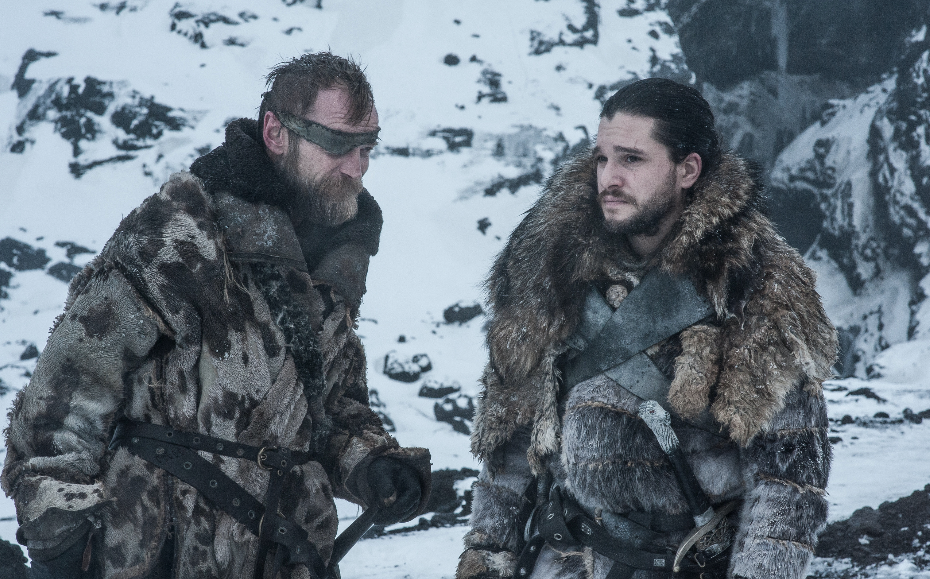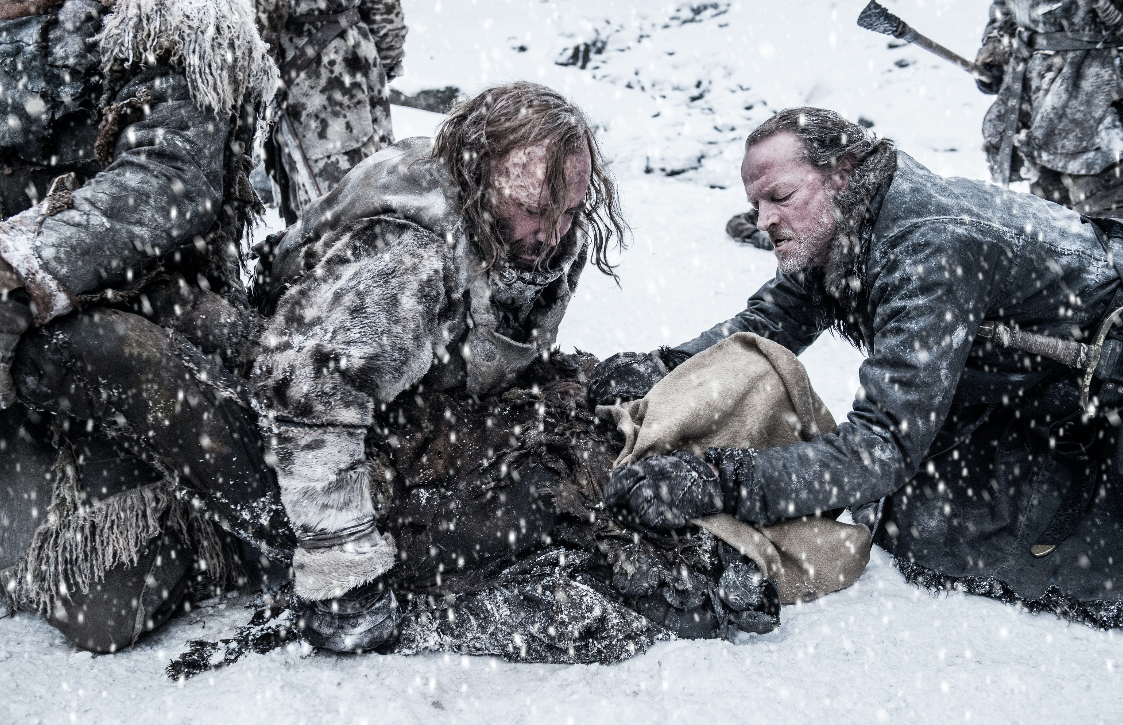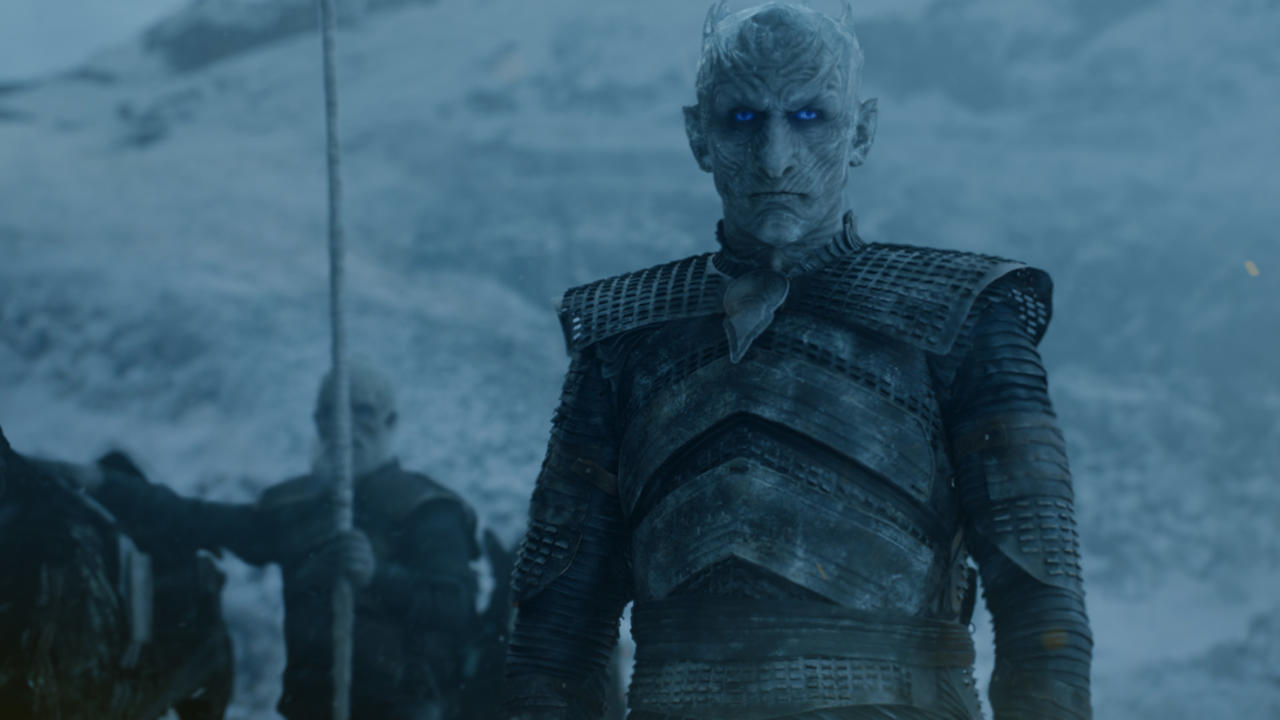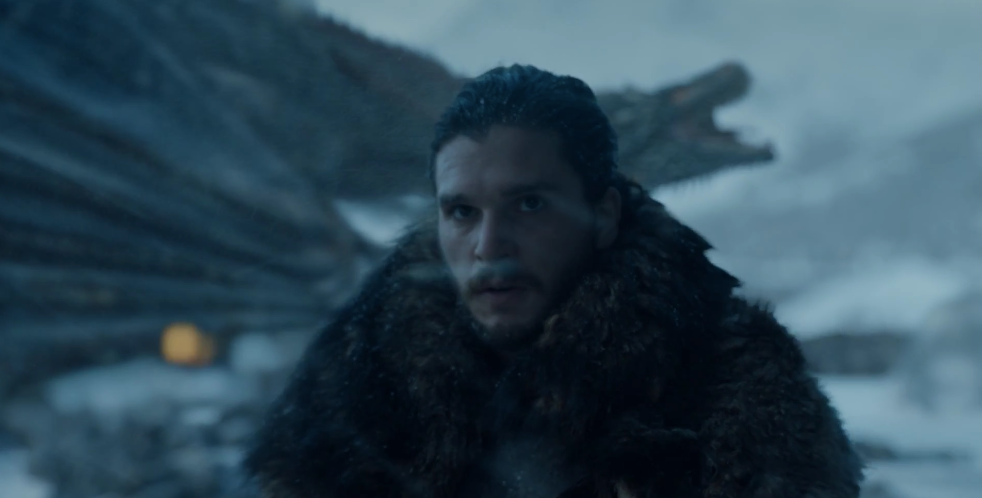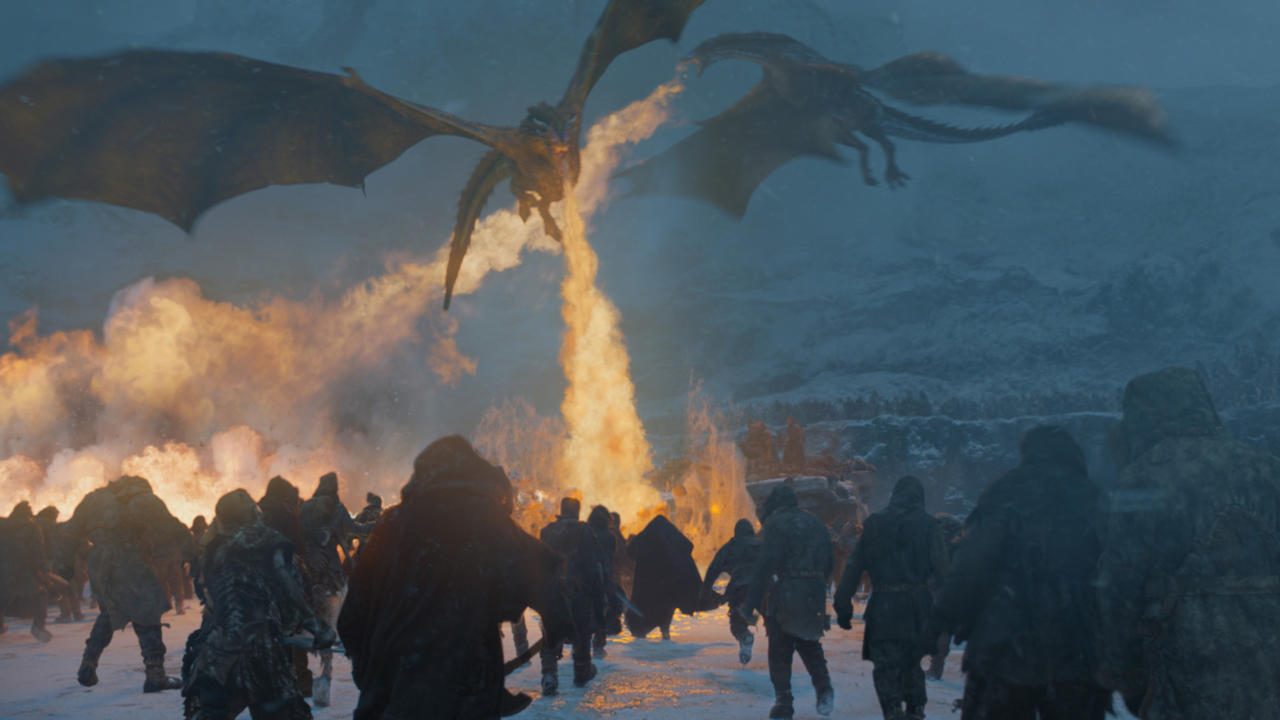Game Of Thrones' Worst Episode Ever: 11 Reasons "Beyond The Wall" Is Still Terrible
GameSpot may receive revenue from affiliate and advertising partnerships for sharing this content and from purchases through links.
"Beyond the Wall" still doesn't work.
Game of Thrones Season 8 is almost here, so we've been catching up on the series so far in preparation. Here are our thoughts on the show's worst episode ever.
HBO's Game of Thrones has had its ups and downs, but as the show's eighth and final season approaches, one particular down stands out among the rest: Season 7, Episode 6, "Beyond the Wall."
This was the episode where Game of Thrones truly stopped making sense. The rules of space, distance, and time went hurtling out the window faster than King Tommen at the end of Season 6. The plot was sloppily conceived and poorly written, the timeline made no sense, and the characters acted in inexplicably stupid ways. "Beyond the Wall" should have been an incredible climax, but instead it stands as the show's biggest misstep to date.
Game of Thrones Season 8 premieres on April 14, and as part of our preparations, I re-watched Season 7. Part of me hoped I would like this episode more in retrospect, but on the contrary: It tilted me now more than ever. Sure, the great Season 7 finale largely made up for it, but the damage this episode does to the show's average quality bar will never be repaired. At the show's best, so much work goes into maintaining the audience's suspension of disbelief through a commitment to realism and consistency--and that's what makes it so jarring when the show suddenly plays fast and loose with its own rules.
After all this time, here are 11 huge issues I still have wth Game of Thrones' worst episode ever. When you're done, check out our list of every main character who's still alive in Season 8, 27 questions the show still needs to answer, and our theory on how Ned Stark might return for the show's final season.
1. The timeline just doesn't make sense no matter how you look at it
This is arguably the episode's biggest problem, and one that even the most casual viewers couldn't help but notice. Exact distances in this series are often debated, and the show might be different from the books. But it's at least 1,000 miles from Winterfell to King's Landing, as Jon remarks to Sansa in Season 7. That makes it even farther from Dragonstone (which is nearby King's Landing) to Eastwatch, and even farther to however far north of the Wall Jon and his merry band marched. For Jon to journey from Dragonstone to Eastwatch in a timely manner to embark on this mission in the first place is a stretch, nevermind for Gendry to run back, a raven to reach Dragonstone, and Dany to fly all the way back up in what appears to be no more than a single day.
It's been analyzed to death in the year and a half since it aired, but the episode's director, Alan Taylor, came out and said it outright: they "fudged" the timeline and tried to leave it deliberately vague so they wouldn't have to do the hard work of explaining how this is possible. They prioritized the "emotional experience" of the episode over logical and realism, and the whole show suffered for it.
2. The episode ignores how ravens work
This issue is arguably even bigger. While the details of a timeline can be "fudged," the reality of how messenger birds work can't. And the reality does not match up with events in this episode.
Like real-world carrier pigeons, Game of Thrones' ravens are raised in one place, brought to another, and then fly home with messages. The Maester or raven-keeper of each keep, hold, or castle cares for and keeps track of a whole rookery full of ravens for various destinations. When Sansa wants to send a raven to Cersei, Maester Wolkan doesn't grab a random bird and whisper "King's Landing" in its little bird ears--he selects a raven that is from King's Landing and sets it loose. The raven then flies home with the message.
Why is this an issue in "Beyond the Wall"? Because there's no conceivable reason why Eastwatch would have ravens from Dragonstone. Eastwatch is being manned by Jon's Wildlings, who arrived recently and, besides, have no idea how to keep and use ravens. If there are also still Night's Watch men there maintaining the ravens, it isn't established, as Tormund and his wildlings are the only characters we see there--and Jon specifically sent the Wildlings there in Season 7 Episode 1 to "man the castle," not "reinforce the Night's Watch." If there were Night's Watch there, Tormund wouldn't be in command.
On the other side of the problem, Dragonstone was abandoned until Dany landed there recently, and abandoned castles tend to not have active rookeries. Even if it did--if the ravens hung out there without anyone feeding them--"Beyond The Wall" gave no indication that Jon brought any north with him. That would have been the smart move, but this is not a smart episode.
3. Why don't they ride horses from Eastwatch?
This is a smaller gripe, and one that likely has more to do with the show's always-stretched budget than an actual oversight. But still, the episode's problems would have been solved if Jon's party had ridden horses north from Eastwatch. Gendry would have been able to ride back much more quickly than he could conceivably run--in fact, they could have just grabbed that wight and galloped away back south if they'd had horses. Of course, the episode's dramatic climax wouldn't exist in that case.
4. These conversations feel like fanfics
The conversations between characters like Jon and Jorah, Tormund and Sandor, Jon and Beric, Gendry and Sandor--etc.--are mostly well-written, and fun to watch in a vacuum. But ultimately, these scenes feel like pure fan service--like the writers (showrunners David Benioff and Dan Weiss in this unfortunate case) sat down and said "OK, who's still alive, how many of them can we somehow get in a scene together, and what fun conversations would they have?" and went from there. In other words, it feels contrived.
5. One single wight being left alive is way too convenient
The purpose of this scene was to demonstrate that if you kill a White Walker, all the wights it created are also destroyed. That's fine--if all these zombies had disintegrated, the group could have used it as a lesson learned and concocted a plan to nab a single wight without alerting its commander next time. Instead, this undead squad was apparently accompanied by a single zombie that had been turned by a different White Walker, so a single one was left alive after the rest spontaneously dropped dead. That's way too convenient, even for this show at this point.
6. Why does Thoros live through a bear attack just to die one scene later?
This is more of a pacing gripe: Why does the red priest Thoros survive getting mauled by a giant zombie ice bear only to die in a much more boring way in basically the next scene? After the bear scene, Thoros is apparently well enough to make it out onto the ice lake, but then inexplicably freezes to death overnight while everyone else is fine. Wouldn't it have been more satisfying and exciting to have him die when he got shredded by an undead bear instead of off-screen during a lull in the action? It's a baffling choice.
7. It's never clear how many people are in their party
This is a massive complaint with this episode, and it's a problem never present in the books, where even the most minor characters almost always have fully fleshed out backstories and personalities. Almost every shot of Jon's party in "Beyond the Wall" only shows the seven main characters we know; Jon, Gendry, Beric, Thoros, Tormund, Jorah, and the Hound are the only characters who get to say any lines, and in most of the scenes north of the Wall, they appear to be the only ones there. This is most egregious when they're stranded out on the ice lake toward the end.
Yet every time someone needs to get killed by an ice bear or dragged into the freezing water, suddenly there's a random, unnamed companion present to take the bullet for the main characters. This breaks basic rules of establishing stakes and creating clear action, and leans so heavily on the "redshirts" trope that it feels like satire--and this could have easily been avoided with better directing and editing.
8. Why does the Night King let them hang out on that island for so long?
The episode's explanation for why the White Walkers let Jon and co. chill for so long is that they're waiting for the ice around their island to re-freeze so they can attack. There are several reasons why this is nonsense, and I don't even have to get into the math of how cold it is, how thick the ice needs to be, or whether there's a current. For one thing, it's well established that the presence of the White Walkers lowers the temperature dramatically, so they should be able to use their cold magic to re-freeze the ice regardless. For another, the Night King has huge ice spears that he loves to throw massive distances. A few of those could have easily ended this silly standoff.
And don't tell me he was using the group as bait so he could get an ice dragon--even if he recognizes Jon, how could the Night King have possibly known that Daenerys would fly her dragons up there to rescue him? On that subject, what the heck was the Night King's plan to take down the wall if Dany hadn't stupidly allowed him to kill Viserion? Ugh.
9. Jon acts like an absolute idiot here and no one ever calls him on it
Everyone else is on the dragon, dude. Your escape is made. Listen to your friends when they scream at you to stop fighting and beat your retreat. Literally everything bad that happens in this scene could have been avoided if Jon didn't act like a total idiot and put everyone at risk so he could kill a handful of zombies. Granted, Jon being a reckless dumbass isn't anything new (he should have never gone on this mission in the first place). What makes this even more unbelievable is that Dany doesn't seem angry with him at all--quite the contrary, in fact.
10. This much fur, soaking wet, would be way too heavy
Maybe this one's just me--I'm the guy who called an actual armorer to ask if Jamie Lannister could survive sinking in full plate at the end of "Spoils of War." The same problem applies in this episode, only it's even worse. Sure, Jon isn't wearing metal armor (that we can see, at least, although he likely is under all that fur). The fur is the problem: That many layers would be unbelievably heavy after getting soaked with freezing water. At this point, Jon has been in multiple battles and likely hasn't slept or eaten in days. The idea that he could easily pull himself up onto the ice while weighed down in shockingly cold water with fatigue weakening him even further is simply bad, lazy writing. Besides, it's not like anyone thinks Jon is going to die here. Why have this in the scene at all?
11. All the episode's problems are self-contained and could have easily been written differently
When you boil it down, this is really the thing that makes this episode so hard to swallow: Every single one of these problems was created within the episode itself. These aren't series-spanning problems that suddenly came to a head, or some kind of narrative knot the show had to do its best to unravel. Every single issue in "Beyond the Wall" was created in the episode itself, from a combination of bad writing, sloppy directing, and blatant disregard for the rules of good storytelling.
This episode could and should have been so much better. The problems are easily solved: Give some of the random redshirts a couple of lines, and use some establishing shots to show how many there are; have Jon and co. get stranded in a more easily defensible position, like a cave or narrow pass, that they could conceivably hold for longer while they wait a more realistic amount of time for rescue; have them bring ravens north from Dragonstone so they could just set one loose instead of needing Gendry to run a frosty marathon in record time; don't have Jon fall in the water for no reason when he's never in any actual danger; etc.
Game of Thrones deserves this level of scrutiny because it's usually better than this. As fans, we can't help ourselves. So let's hope Season 8 raises the bar when it begins airing April 14 on HBO.




